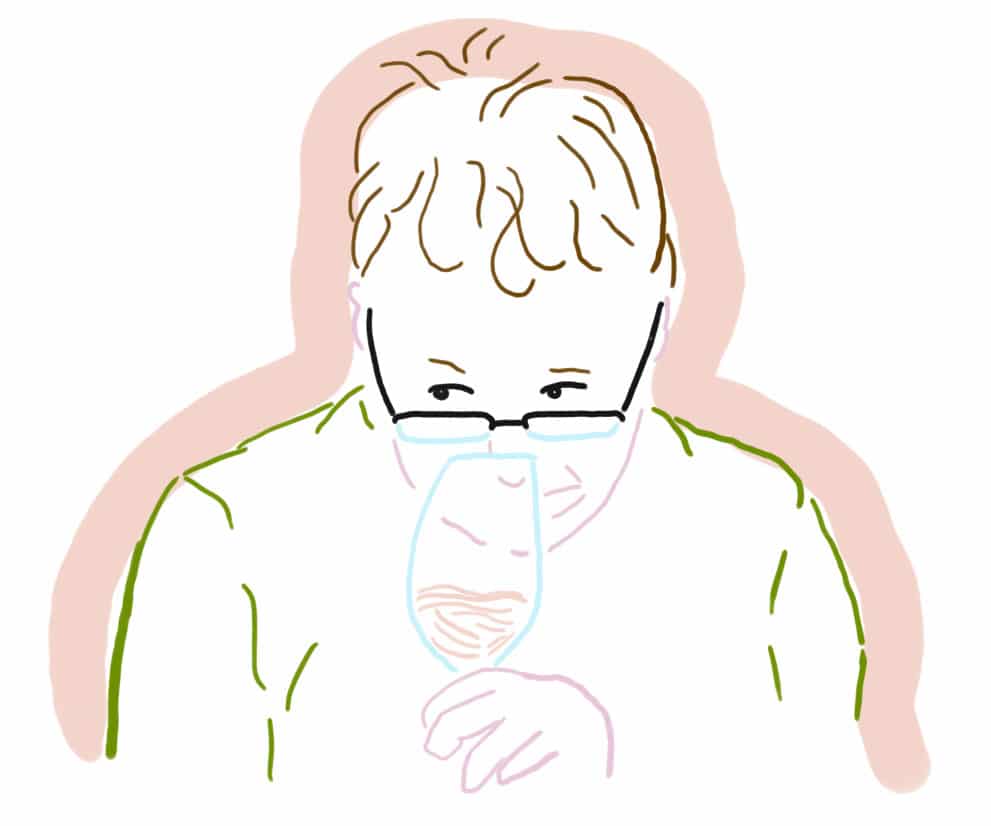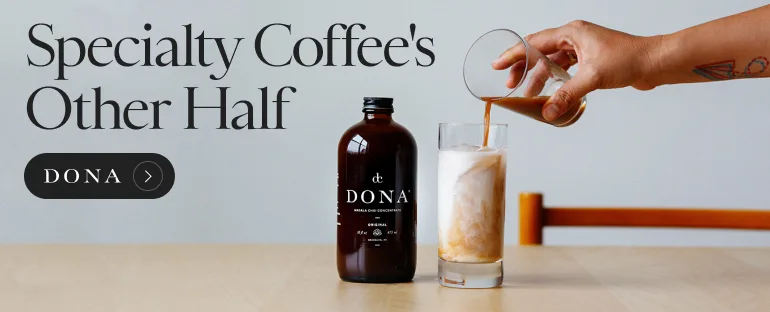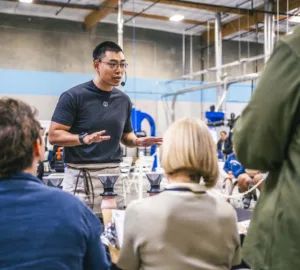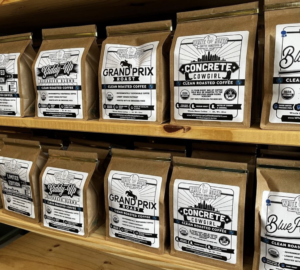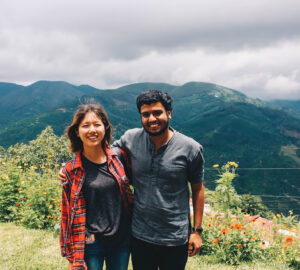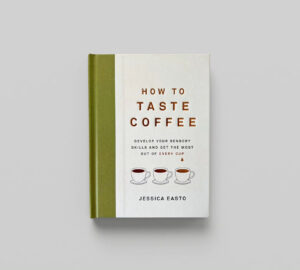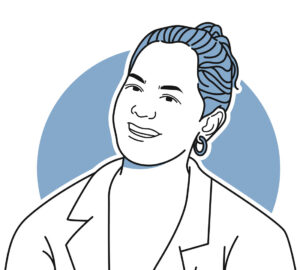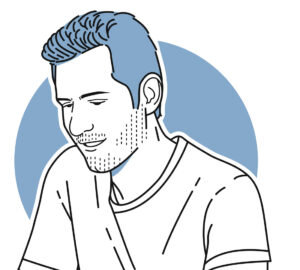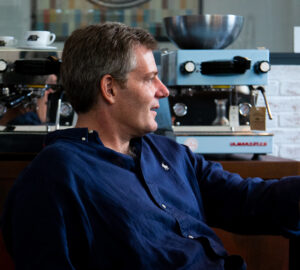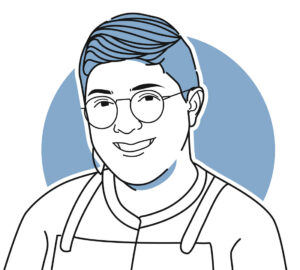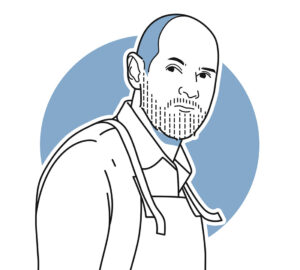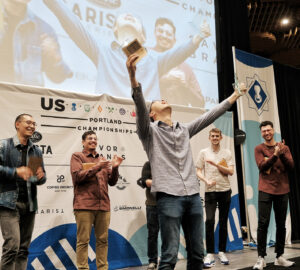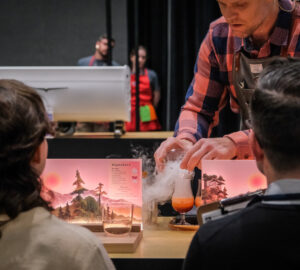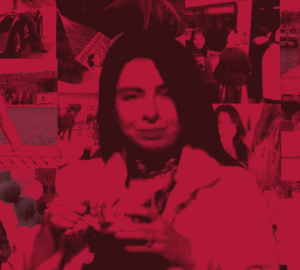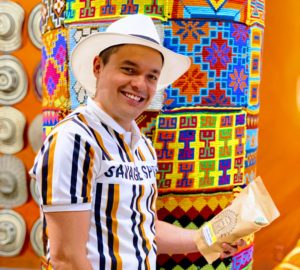Described as a “poacher turned gamekeeper”, Wregg spun an early career working in restaurants and a degree in English Literature from Oxford University into one of the most influential roles in natural wine. As the sales and marketing director for legendary London-based natural wine importers Les Caves de Pyrene, he oversees Caves’ legendary book of minimal intervention wines from Spain, Italy, France, South Africa, Australia, and the United States.
The book itself is a work of authorial wonder—download it here—a Homerian odyssey across the wine world, a free range Wreggian feast of the anecdotes, mythologies, and philosophies helping drive wine forward in 2017. In its volumes you’ll discover wines from near and far, with a particular focus on the wines of Oregon, strangely enough, whose provenance Wregg is single-handedly helping grow in the wine bars and restaurants of London. It’s no wonder that the winemakers here in Portland adore him.
“Natural wines might natural wines may be volatile, silty and sometimes untrustworthy,” Wregg told the Financial Times in 2011, “but they are also unusually delicious.” He’s telling Sprudge Wine readers much more in the interview below with Jordan Michelman, conducted digitally and over a long lunch at Terroirs, the Caves-owned natural wine bar in London’s Charing Cross.
Hello Doug Wregg, and thank you for speaking with Sprudge Wine. First things first, how did Les Caves de Pyrene get its start? Was the goal always to focus on “real wines” or did this evolve as a reaction to a market gap?
Les Caves de Pyrene started in 1988 selling the rustic wines of SW France (where the owner and founder was born and grew up). Over the years we focused on wines of terroir, those that spoke most eloquently of their origin. Our identification with regional “earthy” wines made by small vignerons made us a bit different; we began to look for greater purity and energy in the wines we sourced and this led us to discover natural wines, the consequent opening of our natural wine bars and founding of The Real Wine Fair.
How many wines from North America do you currently work with? Whom do you represent from this part of the world?
We currently represent 18 growers from North America.
In California, we work with Clos Saron; Ambyth Estate; La Clarine Farm; Forlorn Hope; The Living Wines Collective; Ryme Cellars; Idlewild; and Ruth Lewandowski.
In Oregon, we work with Kelley Fox; Sokol Blosser; Bow & Arrow; Minimus; Golden Cluster; Beckham Estate; Ovum; and Statera Cellars.
Last, in Vermont we work with La Garagista.
Is there one particular wine in your portfolio you feel the most connected to?
Kelley Fox’s Maresh Pinot Noir—when I smell and taste the wine I am in the vineyard. I feel like I am drinking my real wine education, and surrendering to the memory of a place with its own special energy.
Who’s a LCdP winemaker you feel deserves more attention?
Too many to mention! Dominique Lucas (Les Vignes du Paradis in Savoie and Burgundy) is making stunning wines.
We keep hearing rumors here in America of a global online shop for Les Caves. When will it launch? Will it really ship worldwide?
We are hoping to launch our on-line shop in September or October, and yes, we will offer to ship wine anywhere in the world. We already provide that service but it is not obvious when you look at our existing web site.
LCdP is involved in a number of different wine bar / bottle shop projects around the world. What’s the concept for each? And is it fair to say this approach to importer-partnered retail is uncommon?
Terroirs Wine Bar (London, Charing Cross) is the original natural wine bar. The concept is simple – a wine bar/restaurant serving wholesome food made from well-sourced ingredients with a great wine list featuring exciting and unusual naturally-made wines. The atmosphere is lively and casual. Brawn was the second place (it is now owned by the chef)–it has a different menu, a different feel to it. The other wine bars have their own identities also.
It is fairly uncommon, but things are changing. Some progressive wine retailers are also putting together some simple food offerings; whilst some restaurants have licenses to sell wines to take away. The differentiation between the on-and-off-trade sectors is blurring. Which I think is a good thing.
You recently hosted the 2017 edition of Real Wine Fair, one of the natural wine world’s leading events. Who stood out for you at Real this year? What was your favorite discovery of the festival? Is there a favorite moment from the show you can share with our readers?
This was probably the best fair to date (we say that every year). The quality was tremendous. We had a record number of producers attending (170) and countries represented (21). There was a great buzz and excellent interaction between the growers and the visitors.
The Americans were out in force. I loved the wines of Martha Stoumen. Evan Lewandowski’s latest vintages are delicious; Deirdre Heekin (La Garagista) is making miraculously beautiful wines from hybrid grape varieties in Vermont without additives. There were also many top Austrian artisan vignerons on show—the wines of Martin Arndorfer in Kamptal, Andreas Tscheppe and Sepp Muster in Styria and Claus Preisinger and Franz Weninger in Burgenland were stand-outs amongst the standouts. And the Királyudvar wines from Tokaji surprised me—so graceful.
The seminars were a real attraction at this year’s fair. Chad Stock (Minimus Wines) gave a most compelling talk on “Truth, Beauty and Wine Faults” using various of his wines to illustrate that flaws could be an integral and aesthetically pleasing part of the wine. Michel Tolmer’s book signings were idiosyncratic–instead of just scribbling his name, he drew individual cartoons. Let’s just say that the queue to get books signed moved very slowly!
One of the great moments was when four of the great natural wine bars in the world—The Four Horsemen (Brooklyn), Verre Vole (Paris), Bar Brutal (Barcelona) and Embla (Melbourne) joined forces with Terroirs in London. They all cooked their favourite dishes to go with the 400 bin Terroirs wine list, and the atmosphere was terrific.
This is sort of a chicken & the egg question, but I’m wondering about wine hype. Take someone like Domaine No Control. There is tremendous excitement (I would dare even say hype) around Vincent Marie’s wines here in America, and part of me wonders if that’s not due in some large part to DNC being a LCdP winemaker. The idea being that access, even limited access, is necessary to create buzz.
So my question is— does LCdP seek out “buzzy” winemakers? Or does the buzz come after they sign?
We don’t go after modish growers; it is serendipitous that the growers acquire reputations after we start to deal with them. With Domaine No Control there are probably several reasons why this domaine is attracting attention. Firstly, the name! The punk/rock n roll ethos ties in well with the youthful appeal of natural wine. More importantly, the wines. These are solid specimens—not simple cold carbonic fruit bombs. They have warp and weft; minerality and density. And longevity. In the UK we judge the growers by their wines and not the wines by their growers. We’ve dropped producers who ended up believing their own hype and neglecting the nitty-gritty of farming and wine-making. Wine buyers and wine producers need a certain humility, because you really are only as good as your last vintage. Hype is like the latest restaurant that opens to a massive PR fanfare and is packed for three weeks. If the food, wine and service don’t measure up it becomes a vanity project. A lot of growers on our list are institutions because they perform consistently and pay great attention to detail.
Who are you reading right now for wine writing? Who should our readers check out?
I don’t read that much in the way of wine writing as I am constantly writing! Alice Feiring (her newsletter is The Feiring Line) writes lovely limpid fearless prose. She knows her stuff too and can back up her opinions. Andrew Jefford (Decanter & World of Fine Wine) writes with lyrical ease – I don’t always agree with him (especially about natural wines), but I enjoy his well-turned phrases or several. Jamie Goode (The Wine Anorak) is very fair-minded and thorough. David Crossley of Wide World of Wine is good as well.
The LCdP wine book is a thing of beauty—lyrical, thought provoking, more like wine writing than wine sales. Why do it like this? Why this approach?
Thank you! Wine for me is the start of a journey. We drink wine for enjoyment and relaxation, to liberate our minds. It is a social lubricant as well. And so the wine catalogue has many functions—to inform, to tease and provoke, to make you laugh, to surprise and puzzle you. When I drink wine I think of certain poems, pieces of music, paintings, bits of dialogue from TV programmes or movies. Wine is hugely associative, and when we smell it we can be transported.
The catalogue reflects and communicates this. It is also a monumental piece of self-indulgence for me. Where else would I be able to quote from Muppet Movies and Marcel Proust interchangeably?
How do you define “natural wine”—can it be defined?
I can define it. But part of me loves glorious uncertainty and I don’t want it to be defined any more than I want to see a butterfly nailed to a wheel.
A loose and encompassing definition might be that natural wine is made from grapes that are farmed organically and/or biodynamically, harvested by hand to achieve the maximum maturity and quality, and then fermented ambiently with their own native yeasts without any additives or subtraction other than a small amount of sulphur and a (very) light filtration.
There are many riders to this definition, but I would add certain aesthetic criteria. That a natural wine is one that is not denatured by over-processing; that a natural wine is living and therefore is mutable; that a natural wine possesses raw energy; that a natural wine can never be replicated because it is a part of a transformation that has not been precisely controlled; that a natural wine has been made by taste and not by rigidly following a recipe. But I also believe that if you legislate (in terms of definitions) then you inhibit the freedom of the vigneron and the vigneron is the human element in the “terroir” of the wine, the one who guides from grape to bottle.
You’ve been sentenced to death, and are planning your last meal. What are you eating? What bottle(s) to wash it down?
Just caught Hebridean langoustines with aioli, a fresh garden salad and some buttery new potatoes, with a bottle of Alice & Oliver de Moor Chablis or old vine Aligote.
Thank you.











